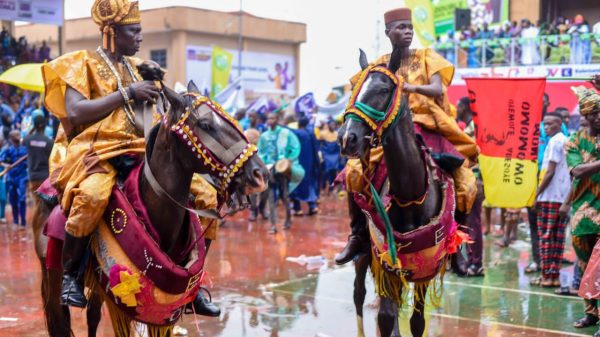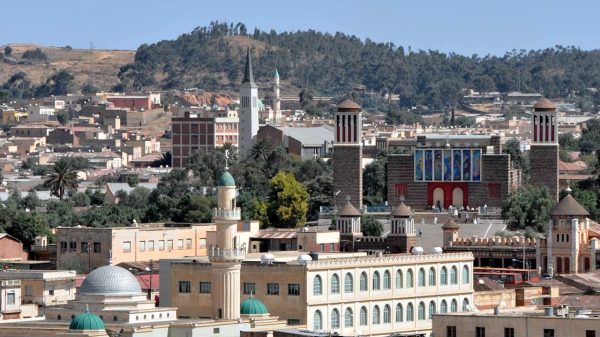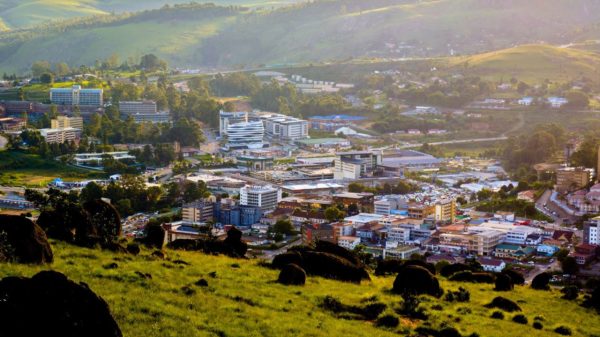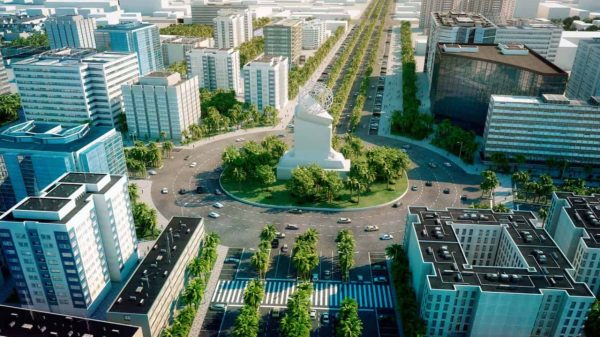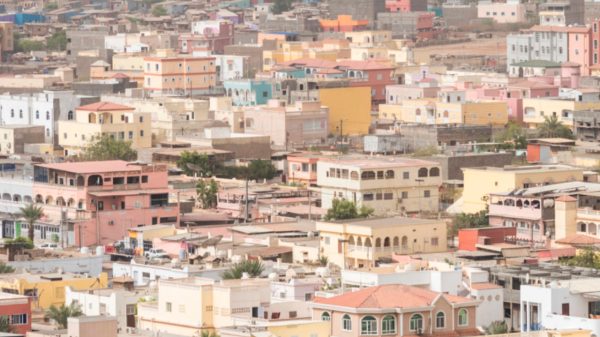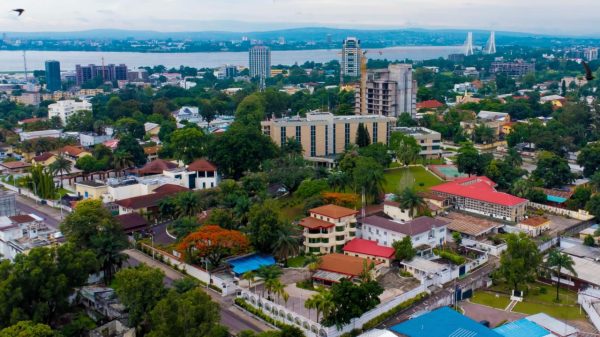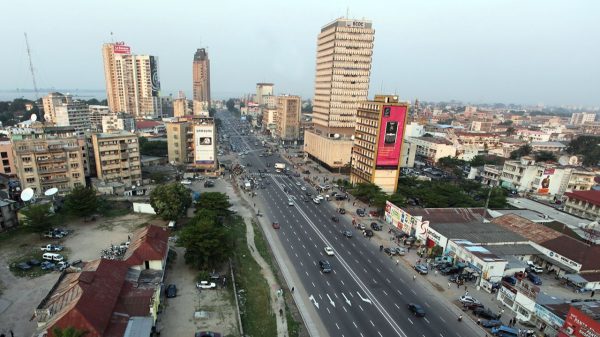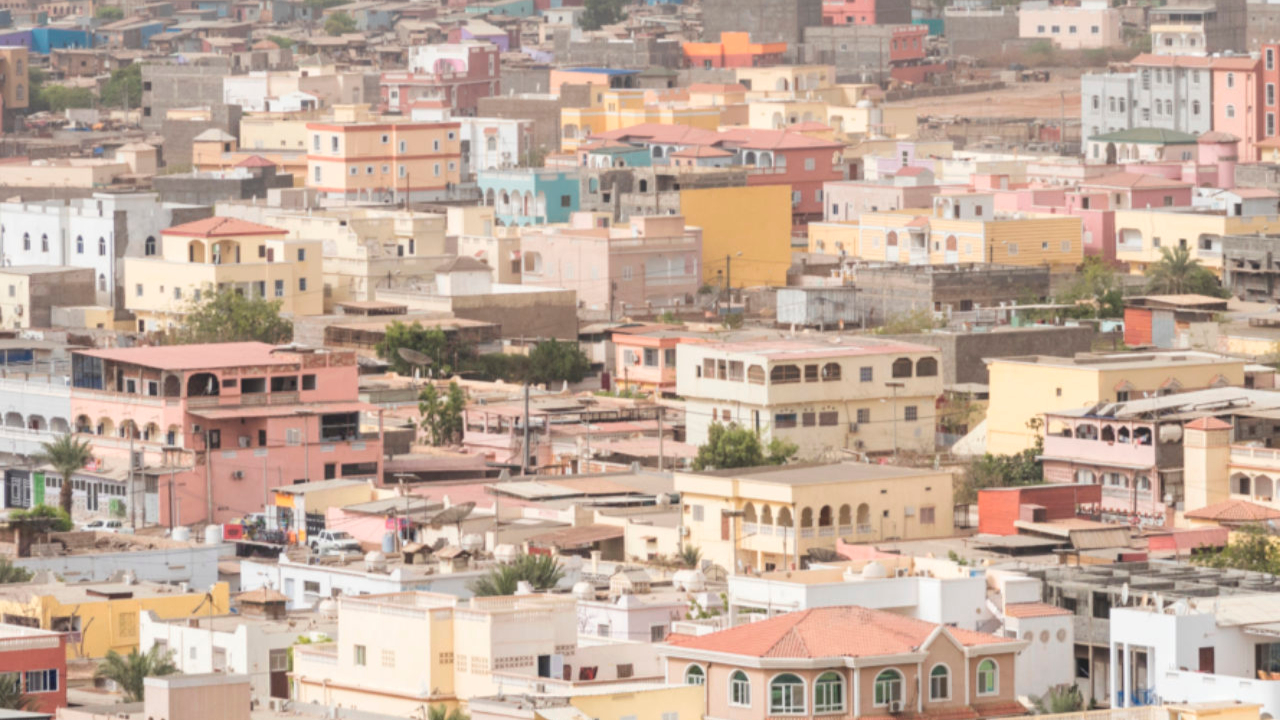Nestled at the strategic Horn of Africa, where the Red Sea meets the Gulf of Aden, lies the fascinating nation of Djibouti.
Often overlooked, this small but significant country boasts a unique blend of cultures, breathtaking geological wonders, and a rich history shaped by its pivotal location. From its dramatic volcanic landscapes and otherworldly salt lakes, like the shimmering Lake Assal, one of the lowest points on Earth, to its vibrant capital city, a melting pot of African, Arab, and French influences, Djibouti offers a captivating experience for intrepid travelers and curious minds alike.
This article will delve into nine particularly interesting facts about Djibouti, peeling back the layers of this intriguing nation to reveal its hidden gems and shed light on its crucial role in the region. Prepare to be surprised by the diverse landscapes, resilient people, and captivating stories that make Djibouti a truly remarkable place.
Discover the secrets held within its arid plains and coastal wonders, and gain a deeper appreciation for this often-underestimated corner of the African continent.
1. Lake Assal: Africa’s Lowest Point and a Hypersaline Marvel
Lake Assal, situated in central-western Djibouti, is a geological wonder. At 155 meters below sea level, it holds the title of Africa’s lowest point and ranks as the third-lowest on Earth, following the Dead Sea and the Sea of Galilee. This crater lake’s hypersaline nature results from its location within the Afar Triangle, where high evaporation rates and minimal freshwater inflow concentrate salts, making its salinity levels among the highest globally. The lake’s unique environment supports specialized microbial life and has been a source of salt extraction for centuries, contributing to both local economies and cultural practices.
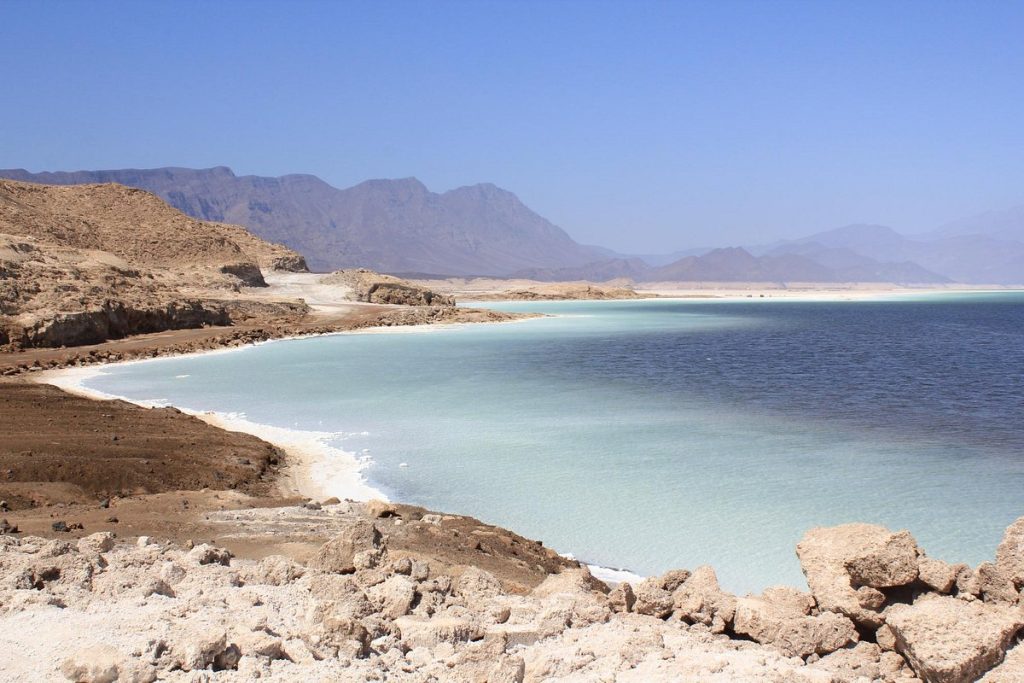
2. Strategic Military Hub: Hosting Global Powers
Djibouti’s strategic location at the southern entrance to the Red Sea has made it a focal point for international military presence. Notably, it hosts Camp Lemonnier, the only permanent U.S. military base in Africa, and China’s first overseas naval base, situated just miles apart. This proximity underscores Djibouti’s pivotal role in global maritime security and geopolitical dynamics, as it provides critical support for operations in the Middle East and Africa.
3. The Afar Triple Junction: A Tectonic Crossroads
Djibouti lies atop the Afar Triple Junction, a rare geological formation where three tectonic plates—the African, Arabian, and Somali—diverge. This unique positioning results in significant geological activity, including earthquakes and volcanic eruptions, shaping the country’s rugged landscape. The ongoing tectonic movements provide valuable insights into plate dynamics and continental drift, making Djibouti a significant location for geoscientific research.
4. Whale Shark Haven: A Marine Biodiversity Hotspot
The Gulf of Tadjoura, off Djibouti’s coast, is renowned for its rich marine biodiversity, particularly as a seasonal gathering spot for whale sharks—the largest fish species. These gentle giants are drawn to the plankton-rich waters, offering unique opportunities for eco-tourism activities like snorkeling and diving. The presence of such megafauna highlights the ecological significance of Djibouti’s marine environments and the importance of their conservation.
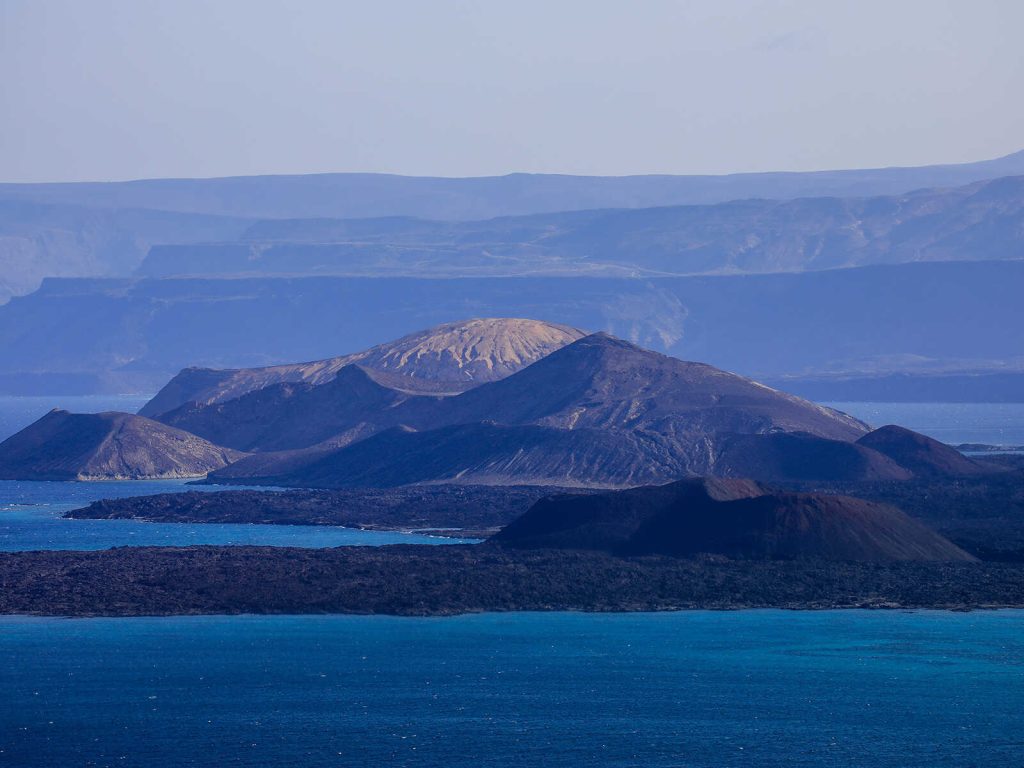
5. Ardoukôba Volcano: A Window into Earth’s Interior
Ardoukôba, a basaltic rift volcano located between Lake Assal and the Ghoubbet al Kharab Gulf, last erupted in 1978. This eruption, characterized by lava flows and the formation of a small cone, provides a rare glimpse into rift-related volcanic activity. The volcano’s activity is a direct result of Djibouti’s position on the divergent tectonic boundaries, making it an essential site for studying the processes of crust formation and geological evolution.
6. Cultural Mosaic: The Afar and Somali Peoples
Djibouti’s population primarily comprises two ethnic groups: the Afar and the Somali (specifically the Issa clan). The Afar people are traditionally nomadic pastoralists, known for their resilience in arid environments, while the Somali Issa are predominantly urban dwellers engaged in trade and commerce. This cultural mosaic contributes to Djibouti’s rich heritage, reflected in its languages, customs, and social structures.
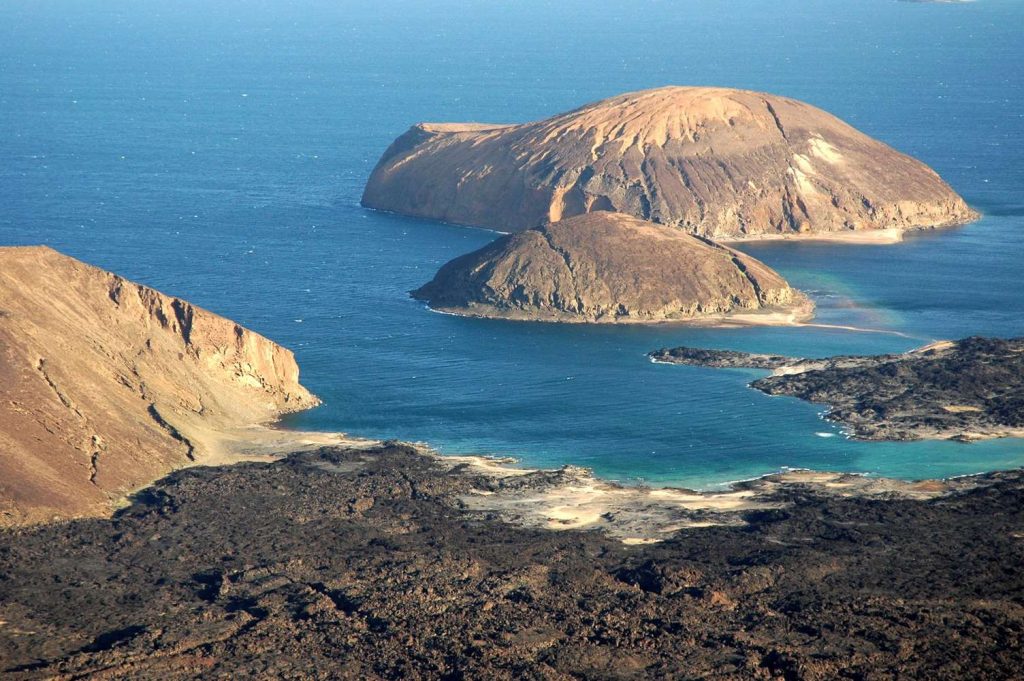
7. Forêt du Day: A Highland Biodiversity Refuge
Forêt du Day National Park, located in the Goda Mountains, is one of Djibouti’s few forested areas. This highland forest, dominated by East African junipers, serves as a critical refuge for various endemic and endangered species. The park’s unique ecosystem contrasts sharply with the surrounding desert landscapes, offering insights into the region’s ecological diversity and the importance of conservation efforts in arid countries.
8. Economic Lifeline: The Addis Ababa–Djibouti Railway
The Addis Ababa–Djibouti Railway, inaugurated in 2017, is a modern standard-gauge railway connecting landlocked Ethiopia to Djibouti’s ports. This railway serves as a vital economic artery, facilitating trade and boosting regional integration. By providing efficient access to maritime routes, the railway has significantly enhanced economic prospects for both nations, exemplifying the transformative impact of infrastructure development in East Africa.
9. Djibouti City: A Coral-Based Capital
Djibouti City, the nation’s capital, is uniquely built upon ancient coral reefs that extend into the Gulf of Tadjoura. This foundation has influenced the city’s urban development and architecture, while also presenting challenges related to coastal erosion and sea-level rise. The city’s location underscores the interplay between natural marine formations and human settlement, highlighting the need for sustainable urban planning in coastal regions.
These elaborated facts offer a comprehensive overview of Djibouti’s unique geographical, cultural, and geopolitical attributes, painting a vivid picture of this remarkable nation.
Subscribe to our Newsletter
Stay updated with the latest trends in African Pop Culture!



